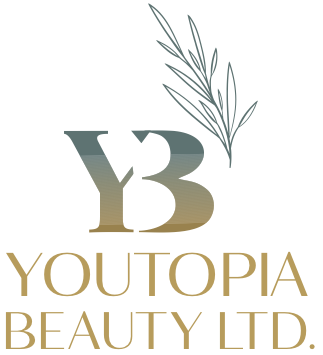Skin
Key skincare ingredients you should look out for
There are numerous skin care products today, both internationally and locally, this blog post will help you understand some of the ingredients in your skin care products that is applicable to your skin concern and how it will benefit you.
Alpha-hydoxy Acid (AHAs)
skin care products containing alpha-hydroxy acids have become increasingly popular in recent years. Creams and lotions with alpha-hydroxy acids may help with fine lines, hyperpigmentation and age spots, and may help shrink enlarged pores. Side effects of alpha-hydroxy acids include mild irritation and sun sensitivity. To avoid burning, sunscreen should be applied in the morning. To help avoid skin irritation, start with a product with a maximum concentration of 10% to 15% AHA. To allow your skin to get used to alpha-hydroxy acids, you should only initially apply the skin care product every other day, gradually working up to daily application.
Salicylic acid
Salicylic acid removes dead skin and can improve the texture and colour of damaged skin It penetrates oil-laden hair follicle openings and, as a result, also helps with acne. Salicylic acid dries out excess oils (sebum) in your pores which in turn reduces breakouts. It is milder and there are many skin care products available that contain salicylic acid.
Hydroquinone
Skin care products containing hydroquinone are often called bleaching creams or lightening agents. These skin care products are used to lighten hyperpigmentation, such as age spots and dark spots related to pregnancy or hormones (melasma or chloasma).. Not all products that contain hydroquinone is harmful to the skin. It’s mostly for correcting severe discoloration .
Kojic Acid
Kojic acid is also is a remedy for the treatment of pigment problems and age spots. kojic acid works similarly to hydroquinone. It is derived from a fungus, and studies have shown that it is effective as a lightening agent, slowing production of melanin (brown pigment) which in turn begins to lighten.
Glycolic
Glycolic acid is a key ingredient for exfoliating your skin. It works by loosening the glue-like substance that holds dull and dead skin cells on the topmost layer of your skin, revealing newer, healthier skin. And because glycolic acid has the smallest molecular size of all the AHAs, it’s the most bioavailable and active, allowing it to penetrate the skin the most easily.
But that’s not all. Aside from providing instant rejuvenation, glycolic acid has also been shown to stimulate the production of collagen and elastin, which means that with continuous use, glycolic acid can actually accelerate skin healing and reduce signs of environmental damage.
Retinol
Retinol is derived from vitamin A and is found in many “anti-aging” skin care products. Tretinoin, which is the active ingredient Retin-A is a stronger version of retinol. If your skin is too sensitive to use Retin-A, over-the-counter retinol is an excellent alternative. The skin responds to skin care products with retinol because vitamin A has a molecular structure that’s tiny enough to get into the lower layers of skin, where it finds collagen and elastin. Retinol is proven to improve mottled pigmentation, fine lines and wrinkles, skin texture, skin tone and colour, and your skin’s hydration levels. Retinyl palmitate is another ingredient related to retinol, but is less potent.
Ascorbic Acid
This is the only form of vitamin C that you should look for in your skin care products. There are many skin care products on the market today that boast vitamin C derivatives as an ingredient but L-ascorbic acid is the only useful form of vitamin C in skin care products. With age and sun exposure, collagen synthesis in the skin decreases, leading to wrinkles. Vitamin C is the only antioxidant proven to stimulate the synthesis of collagen, minimizing fine lines, scars, and wrinkles.
Hyaluronic Acid
Skin care products containing this substance are often used with vitamin C products to assist in effective penetration. Hyaluronic acid is often advertised for its ability to “reverse” or stop aging. In n This is because the substance occurs naturally (and quite abundantly) in humans and animals, and is found in young skin, other tissues, and joint fluid. Hyaluronic acid is a component of the body’s connective tissues, and is known to cushion and lubricate. As you age, however, the forces of nature destroy hyaluronic acid. Diet and smoking can also affect your body’s level of hyaluronic acid over time. Skin care products with hyaluronic acid are most frequently used to treat wrinkled skin.
Benzoyl Peroxide
Benzoyl peroxide is the most effective acne-fighting ingredient available without a prescription. It works best on traditional red, pus-filled pimples (pustules).
In addition to removing excess oil and dead skin cells, benzoyl peroxide helps kill acne-causing bacteria beneath the skin.
Now that you are enlightened about major ingredients in your skin care products, you can stop by at the youtopia beauty store to get everything you need for a glowing and radiant skin.
